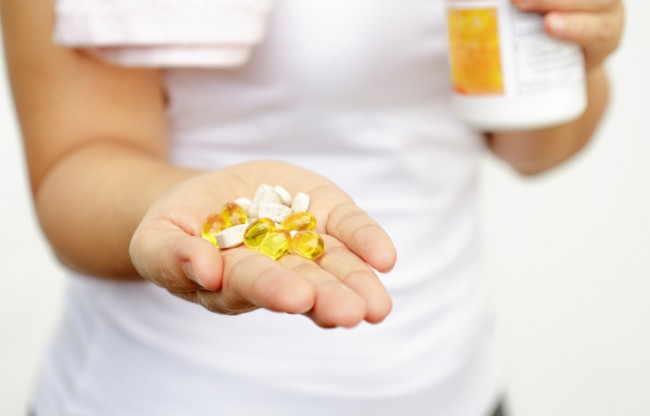If you’re serious about fitness, sports nutrition supplements may be a regular part of your routine. But with so many different types on the market, knowing which ones to choose isn’t always easy. While most supplements are fine to take on a daily basis, there are a few that should be used only occasionally—and some you might want to avoid altogether. Here’s a rundown on popular supplements that should be taken with caution.
Pre-workout drinks
They’re quick, easy and fuel you up for a more energetic or intense workout. Plus, many pre-workout beverages are stimulant free, natural and safe. So what’s the problem? You don’t want to become dependent on these drinks to give you energy every time you exercise. Once in a while is fine—just don’t overdo it.
Healthier option: In place of a pre-workout drink, have a healthy snack 30 to 60 minutes before your workout. Choose something with “light” carbs, protein and fat. For example, try two brown rice cakes with natural peanut butter or a piece of fruit and a handful of almonds.
Fat burners with excess caffeine and stimulants
Some fat burners contain extremely high levels of caffeine or stimulants that may not be safe. If you choose to take a fat burner, be sure to read the label so you know exactly what you’re taking.
Healthier option: Better yet, increase your daily protein intake. Protein requires a lot of energy to digest and also helps keep you feeling full between meals. Conjugated linoleic acid (CLA) is another nutrient that provides natural support for healthy weight management and building lean muscle mass—with no harmful stimulants.* Adding coconut oil to your coffee, smoothies and other drinks and foods is another natural solution to try.
Weight loss products with questionable claims
Lose 10 pounds by next week, without changing your activity level or diet?! Most of us know by now that there is no magic pill that will melt away extra pounds instantly. But celebrity endorsements, infomercials or enthusiastic friends can sometimes cloud our judgment.
Healthier Option: Instead of jumping on a drastic diet or putting your faith in a pill, strive to eat a healthier, balanced diet every day, and increase your activity level, aiming for at least 30 minutes a day several times a week.
Energy drinks
Whether it’s a neon-colored sports drink or a good ol’ fashioned cup of joe, some caffeinated beverages contain up to 500 mg of caffeine, which can cause side effects such as jitters, elevated heart rate and more. Even a plain, small cup of coffee is loaded with up to 100 mg of caffeine. Get a jumbo size, and you may triple or quadruple this amount.
Healthier Option: When that afternoon slump hits, go for a natural pick-me-up such as coconut water. Refreshing and light, coconut water also supplies electrolytes and vitamins and minerals that nourish and energize.
A smorgasbord of supplements
More is not always better! If your kitchen counter is starting to look like a supplement store shelf, it may be time to reevaluate what you’re taking.
Healthier Option: Start with a solid foundation of a good, high-quality multivitamin. Most essential nutrients (vitamins & minerals) should come from a healthy balanced diet. But a multivitamin helps fill in nutritional gaps. Look for a multi that provides 100% of the daily value, and avoid mega doses, which may be dangerous. Add sports nutrition and other supplements as you see fit.
Carb blocker interceptors
Most people gain weight because they take in too many empty calories and don’t exercise enough. Carbs are not the enemy! If you’re eating the correct amount and type, carbs are a healthy addition to the diet. Avoid taking carb blocker supplements that aren’t backed by research (and if you do take them, watch out for bloating and stomach cramps!).
Healthier option: I eat carbs at every meal, keeping my portions a little smaller for dinner and my evening snack. Oatmeal, brown rice, potatoes (sweet or white), whole grain bread and crackers and veggies are all good options. Each serving should be about 25 grams, or one cupped hand for whole grains and two cupped hands for fruits and veggies.

